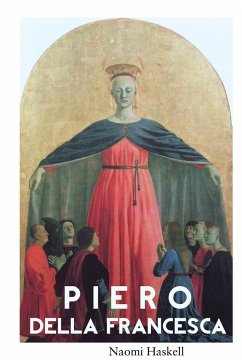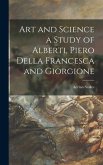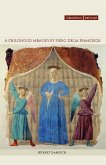PIERO DELLA FRANCESCA By Naomi Haskell One of the major artists of the Quattrocento, Piero della Francesca, who died in 1492, turned mathematics and perspective into a mysticism of space and light. Piero's graceful planar geometry was a precursor of Cubism and 20th century abstraction. Naomi Haskell concentrates on Piero's series of monumental Madonnas, the magnificent Madonna della Misericordia and the mysterious pregnant Goddess, the Madonna del Parto, also his Arezzo fresco cycle, the Resurrection, and the enigmatic Flagellation. Piero della Francesca has one of the most special and distinctive forms of space in painting. The bright, timeless spaces of Piero della Francesca are instantly recognizable, and critics sometimes evoke Greek sculpture in connection with Piero's paintings. One might also see in his hermetic, ritualized and timeless paintings the art of Chinese landscape painting, with its evocations of emptiness, which hints at the radical void of Eastern mysticism (in Zen Buddhism and Taoism). Piero's hypnotic art coolly melds science with art, space with spirit, the personal with the cosmic, and history, myth and religion with time. Like the art of ancient Greece, Piero's paintings rejoice in eternal brilliance, an architectonic precision, a 'Classical' feeling for proportion and harmony. In Piero della Francesca's epoch, perspective, proportion and geometry attained a fetishistic quality. 'Seeing was theory-laden' as Michael Baxandall put it. Piero's sense of mathematics and perspective took in commercial arithmetic on the one hand, and the transcendent purity of the Pythagorean solids on the other. For Piero della Francesca, geometry, proportion, perspective and mathematics had a magical quality. His art exalts, on one level, a jouissance of mathematics and measurement, in which the 'science' of Renaissance perspective is joyously explored. Piero seemed to learn towards the cool, impersonal, impassive scientific inquiry of Aristotlean philosophy, rather than the more sensuous, more obviously mystical aspects of Platonic philosophy. Fully illustrated. Bibliography and notes. 188 pages. ISBN 9781861715548. The book has been updated with new illustrations. www.crmoon.com
Hinweis: Dieser Artikel kann nur an eine deutsche Lieferadresse ausgeliefert werden.
Hinweis: Dieser Artikel kann nur an eine deutsche Lieferadresse ausgeliefert werden.








